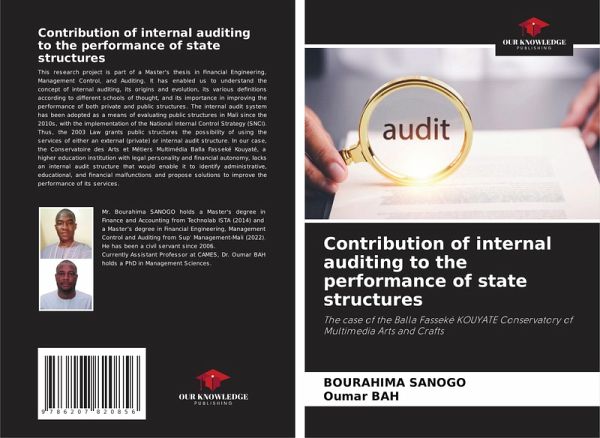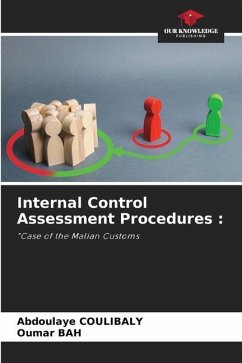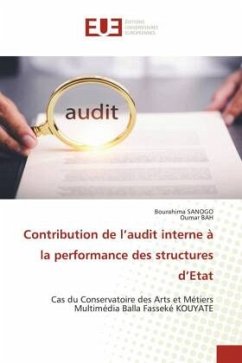
Contribution of internal auditing to the performance of state structures
The case of the Balla Fasseké KOUYATE Conservatory of Multimedia Arts and Crafts
Versandkostenfrei!
Versandfertig in 6-10 Tagen
29,99 €
inkl. MwSt.

PAYBACK Punkte
15 °P sammeln!
This research project is part of a Master's thesis in Financial Engineering, Management Control, and Auditing. It has enabled us to understand the concept of internal auditing, its origins and evolution, its various definitions according to different schools of thought, and its importance in improving the performance of both private and public structures. The internal audit system has been adopted as a means of evaluating public structures in Mali since the 2010s, with the implementation of the National Internal Control Strategy (SNCI). Thus, the 2003 Law grants public structures the possibili...
This research project is part of a Master's thesis in Financial Engineering, Management Control, and Auditing. It has enabled us to understand the concept of internal auditing, its origins and evolution, its various definitions according to different schools of thought, and its importance in improving the performance of both private and public structures. The internal audit system has been adopted as a means of evaluating public structures in Mali since the 2010s, with the implementation of the National Internal Control Strategy (SNCI). Thus, the 2003 Law grants public structures the possibility of using the services of either an external (private) or internal audit structure. In our case, the Conservatoire des Arts et Métiers Multimédia Balla Fasseké Kouyaté, a higher education institution with legal personality and financial autonomy, lacks an internal audit structure that would enable it to identify administrative, educational, and financial malfunctions and propose solutions to improve the performance of its services.












